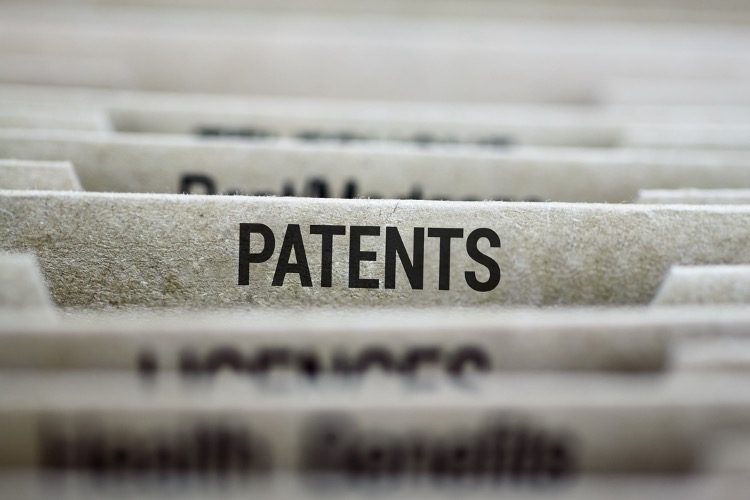
Companies who have exclusive rights to patents based on federally funded research may soon see their rights transferred to their competitors or even to foreign entities if the Biden administration gets its way.
On December 7, the Commerce and Health and Human Services departments released a proposed framework for federal agencies to exercise their authority to march in and take patent rights away from companies if, among other things, those agencies deem the prices of products derived from those patents to be too high.
The administration claims the authority to do this under the University and Small Business Patent Procedures Act of 1980. Popularly known as the Bayh-Dole Act after its sponsors, Senators Birch Bayh (D-Ind.) and Robert Dole (R-Kans.), the law reassigned the ownership of patents based on federally funded research from Uncle Sam to the entity performing the research, typically a university or nonprofit. The owner of the patent could then license it to entrepreneurs, who would develop it into a marketable product; both the owner and the licensee stood to profit from successful development.
“For the three decades before the Bayh-Dole Act, the federal government claimed ownership of any patents that resulted from federal funding and would only grant companies non-exclusive licenses to practice them,” according to an issue brief from the Council for Innovation Promotion (C4IP), which describes itself as “a bipartisan coalition dedicated to promoting strong and effective intellectual property rights.”
“By 1978, the government had obtained approximately 28,000 patents but had licensed fewer than 4% since few private entities would risk such an investment,” wrote C4IP. “Federally-funded patents were so toxic that they were described as ‘contaminated.’”
Bayh-Dole changed all that. “Since its passage more than 40 years ago, the Act has spurred nearly 300 new drugs and discoveries that have driven the innovation economy — contributing $1.7 trillion to the U.S. gross industrial output and adding more than 5.9 million jobs,” Laura Savatski, former chairwoman of intellectual-property licensing group AUTM, told columnist Deroy Murdock. Among the innovations arising from Bayh-Dole are the Google search engine, touchscreens, and Honeycrisp apples.
Of course, the federal government shouldn’t be funding research in the first place; but, given that it does, it would be hard to argue that Bayh-Dole wasn’t a vast improvement over the prior situation. In 2002, the Economist called Bayh-Dole “possibly the most inspired piece of legislation to be enacted in America over the past half-century,” claiming that it had “helped to reverse America’s precipitous slide into industrial irrelevance.”
In an op-ed in The Hill, C4IP board co-chairmen David Kappos and Andrei Iancu pointed out: “The law has proven so successful that most developed nations have instituted their own versions.”
Bayh-Dole does grant the government march-in authority, but only under extremely limited circumstances. “The law instructs the government to revoke such licenses only when the private industry collaborator has not successfully commercialized the invention as a product,” its authors explained in a 2002 Washington Post piece.
“Bayh-Dole did not intend that government set prices on resulting products. The law makes no reference to a reasonable price that should be dictated by the government,” they wrote. “This omission was intentional.”
In the four decades since the law’s passage, not one administration has ever seen fit to exercise its march-in authority — until now. President Joe Biden, seemingly intent on burying the economy and dooming his chances of reelection, plans to take that unprecedented step.
The White House announced the framework proposal as part of its attempts to combat high prescription-drug prices, some of which are already backfiring.
“The White House would like the American public to believe that this framework is about taking on Big Pharma,” observed Kappos and Iancu. “Don’t be fooled; it takes control of patents owned by universities (and their licensees, mostly start-ups) in virtually all areas of technology.”
And who gets the patents once the feds take them over? C4IP warns that the proposed framework
contemplates extensive agency fact-finding before a decision and potential litigation in the Court of Federal Claims afterward. With no check on entities making a request to the government to exercise march-in rights, this process could devolve into a free-for-all where big companies — including foreign companies — frequently petition the government to take over the operations of their smaller competitors in lengthy, expensive proceedings. In the case of foreign companies, this would make it particularly easy for our adversaries, such as China, to mount state-backed campaigns against innovative U.S. companies….
Companies and start-ups that are lucky enough to be successful in commercializing federally-funded inventions will have a target on their back, especially from larger competitors, who will often be able to argue that they could bring a product to market more quickly and with less expense — particularly given that they did not bear any of the research and development costs.
The U.S. Chamber of Commerce opposes the Biden framework, vowing to “use every tool at our disposal to stop” it, Executive Vice President and Chief Policy Officer Neil Bradley said in a statement
“The Biden administration’s conclusion that they have the authority to seize patents for certain medicines not only contradicts the law, it contradicts the conclusion of prior Republican and Democratic administrations. This move will result in fewer medical breakthroughs, ultimately hurting patients,” he contended.
“Let’s be clear, seizing patents is a confiscation of property. If patents for medicine are seized today, what property will the government seize tomorrow?”


